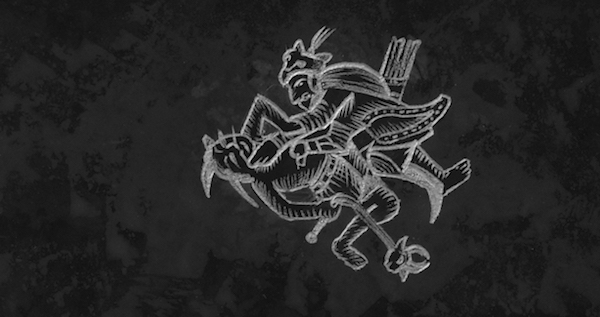
Kaveh Mousavi: Today let’s talk about the idea of reform in Islam. I’m an anti-theist, which means that I disagree with the interpretations of Islam as presented by progressive and liberal Muslims. However, I politically support progressive Muslims. I consider our disagreement about the meaning of Quran and the social role of Islam to be insignificant in comparison with our agreements on issues such as human rights.
However, progressive Muslims usually think this kind of alliance is not enough, and I should not speak out against the Quran and Islam and not say that I think conservative interpretations are truer to the meaning of that text. My question to you is this: When you think of an atheist’s attitude toward reform in Islam, do you expect them to refrain from criticizing the scripture and the religion overall, or do you think alliance over shared values is enough?
Farouk A. Peru: I do not, no. To me, it is a question of space. Think of it like a series of FB groups. We can have a group called ‘Activism for Humanity’. Another group may be ‘Activism for the Muslim World’. In these groups, we can talk about things in common, such as removal of oppressive systems whether globally or in the Muslim world. Then we can have discussion or debate groups. Groups like ‘Debates on the Quran’ or ‘Debates on Morality’. In these groups, we can differ. People can choose which space they’d like to be in at any given point in time. I myself like to be in activism most of the time but I do like to debate as well, as my presence here would indicate, lol.
Kaveh: That’s great, it means we agree. That’s it, the blog is over!
OK, I am joking. I think another thing we agree on is that Islamophobia is a real problem in the West and we need to combat prejudice against Muslim minorities. In that regard, the work of Muslim reformers is invaluable. Do you think strong criticisms of Islam lead to Islamophobia? Or are they completely irrelevant, or is the truth somewhere in between?
Farouk: Indeed we do seem to agree on many things. Maybe Sam Harris’d condescend to be my next partner, lol.
No no, agreement comes because we can manage our disagreements well, and that’s a good thing. Good question there. To me, criticism of Islam is a good thing but it must be very specific. Language here is important. What I find with Dissenting Muslims (atheists, agnostics, apostates from an Islamic heritage) is that their language is not very nuanced.
For example, they may say ‘Islam orders believers to kill apostates’. I would question this statement with the following arguments. One, what precisely do they mean by ‘Islam says’? Islam is an inanimate object. If Muslims stopped opening certain books forever, Islam doesn’t say anything anymore. So it is really Muslims’ own voices which are projected through the Islamic Tradition.
Two, there is considerable diversity within the Islamic Tradition. We have complex discussions about what apostasy (riddah, itrtidad) even constitutes, let alone if there are punishments or what those punishments should be. Quranists like myself are unanimous in that there is complete freedom of religion in Islam. So be critical all you like, but be fair in the criticism. That’s what I would ask. When we are fair, then the wider public would be less inclined to think Muslims are such despicable people. This in turn would lessen the violence towards them. Incidentally, the violence tends to be towards other people of colour too.
Kaveh: That’s a very valid thing to say. I completely agree that nuance is extremely important when criticizing religion, or anything, basically. Nuance enables us to find problems and great solutions. And yes, many atheists, myself included, sometimes use sloppy language when criticizing religion, and we must try to do better. I mean, I’m also somewhat of a clown, and I joke a lot, but when I am not joking, I certainly should try to be specific in my criticisms.
My next question for you is this: As an atheist ex-Muslim, how do you think I can help the ideal of reforming Muslim communities? What do you expect of me as an ally?
Farouk: Thing is, with religion, people are sensitive. I love religious jokes myself, especially from The Simpsons featuring Ned Flanders where the jokes can be equally applied to Muslims as well. But I guess most of the Muslim community isn’t ready for that sort of humour. I know for a fact such jokes in Malaysia would not go down very well. Ironically, poking fun at religious figures is happening in the social media a lot now. Malay-Muslims are expressing themselves there where they cannot in public.
The role of atheists in Islamic Reform? I say it is levelling sophisticated criticisms towards the religion. I came from a background of what i call ‘blind privilege’. I was told by the Islamic priesthood that we Sunnis, especially of the Shafiee legal school, are upon the right path. It was only later that I came to know there are many holes in my argument. But those arguments merely helped me to refine my faith until ultimately I became a Quranist. Even then, i still have iron out many issues. I don’t think we’re meant to have a ‘confessional’ type religion. I think religion is a workbook and atheists help refine our notes, as it were.
Kaveh: Interesting. Now if you don’t mind, I’ll move to some complaints that I have had from Muslim reformists. I don’t know if they apply to you or not, (one doesn’t), but I’d love to see your reaction.
The first is related to what you already said. About jokes. I know people are sensitive about these issues, but, in my opinion, if something offends someone and it’s not in their space, they can simply ignore it. One problem I have with Muslim reformers is that — sometimes, and of course not all — when someone desecrates something holy in Islam, in cases like Salman Rushdie’s novel or Danish cartoons, instead of sticking with the values such as freedom of speech, they engage in some kind of victim blaming, saying those blasphemers “provoked” the attackers, and they seem to expect non-Muslims to venerate things simply because they are holy to Muslims. Or also, I feel progressive Muslims sometimes ignore atheists and apostates and other people demonized, and do not speak up on their behalf, while their words could help a lot because it is heard better.
In short, I sometimes feel reformer Muslims — not all, of course — are not as brave as they could ideally be, or as consistently committed to human rights values as they need be. Am I being unfair?
Farouk: How unsurprising — I am about to agree with you again, lol! You’re quite right in your observation and I would first start by saying – there is no excuse for violence. The interesting thing is, in the case of Satanic Verses, the book itself was not read by much of the English speaking world, to say nothing of those outside it! In other words, those who protested and rioted did not even know what it was about!
If I may, I will digress a little about Satanic Verses. When I first came to England in the fall of 1996, I bought a copy on the second day. I had been curious about it since 1989 when the scandal erupted. I could not really get offended because I did not get it! It was a very dense book and on top of that, you need cultural references, especially of British South Asians. Only after I became housemates with a few of them for a few years did I understand Satanic Verses and its core theme.
To me, Satanic Verses is a satire of the Traditional Seerah, and it was not totally fictional either. As a Traditional Muslim, I was shocked by the obscene (and fictional) parts of the book, but I did see Rushdie’s perplexed state about his erstwhile religion. It helped me understand why I needed to question religion deeply if my faith is to be genuine.
So I am partly with you and at the same time, I understand the emotions conservative Muslims (even if they are progressive in some ways) experience. Unlike Christians living in the West, they were not prepared for this by the ulama. So they don’t know how to deal with the situation and they lash out. That’s not an excuse but rather a diagnosis.
Kaveh: Yeah, Satanic Verses is a direct parody of Ibn Hisham’s seerah. Quite accidentally I had read that book before, and it was not a very harsh satire in my opinion either.
I think it’s very interesting that we have so much common ground. I don’t have anything left to say.
Farouk: I agree. I’ll see you next week.
 SEE ALSO: A Chasm and a Bridge
SEE ALSO: A Chasm and a Bridge
The inaugural post of Quranist and Apostate











